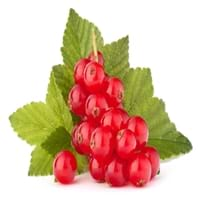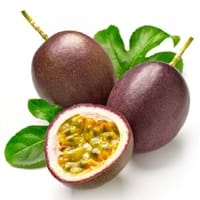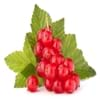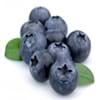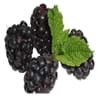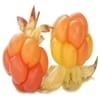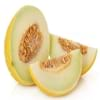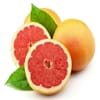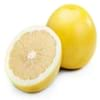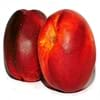Health Benefits
Cancer prevention, Gout treatment, Heart care, Regulation of heart rate, Treatment of rheumatism
Asthma treatment, Heart care, Regulates Blood Sugar, Muscle pain relief, Reduces nervous tension
General Benefits
Anti oxidant properties, Controls blood pressure, Cures fever, Digestive aid, Healing of wounds, Helps in weight loss, Strengthens bones
Boosts immune system, Controls blood pressure, Digestive aid, Fights against infections, Helps in weight loss
Skin Benefits
Brightens and lightens complexion, Reduces wrinkles, Treatment of acne
Anti-aging benefits, Skin revitalization
Hair Benefits
Protects hair
Protects hair
Allergy Symptoms
Abnormally rapid heart rate, Anaphylaxis, Breathing difficulty, Hives, Itching, Swallowing difficulties
Anaphylaxis, Breathing difficulty, Decrease in blood pressure, Dizziness, Skin rash, Swelling of face, Swelling of mouth, tongue or lips
Side Effects
Possibly unsafe during pregnancy
Stressed heart, Nausea, Vomiting, Possibly unsafe during pregnancy
Best Time to Eat
Best if taken as a breakfast (or empty stomach), As a snack in the late afternoon, Don't eat after meal, Morning time (before lunch)
As a snack in the late afternoon, Don't consume at night and before bed, Morning time (before lunch), Strictly avoid empty stomach
Vitamin B5 (Pantothenic Acid)
Not Available
Vitamin C (Ascorbic Acid)
Vitamin K (Phyllochinone)
Calories in Fresh Fruit with Peel
Not Available
Calories in Fresh Fruit without Peel
Not Available
Calories in Frozen Form
Not Available
Not Available
Calories in Canned Form
Not Available
Season
Summer
All seasons
Varieties
Rovada, Stanza, Red Lake, Junifer and Jonkheer van Tets
Australian Purple, Common Purple, Kapoho Selection, Pratt Hybrid, University Selection No. B-74, Waimanalo Selection and Yee Selection
Taste
Sour, Tart
Sweet, Tart
Origin
Europe
Argentina, Brazil, Paraguay
Grows on
Trees
Not Available
Soil Type
Moist, Well-drained
Sandy loam
Climatic Conditions
Cold
Frost free, Sunny, Warm
Facts about
- The albino version of red currants known as white currants, are often sold as different fruit.
- Red currant tea is healthy substitute for coffee.
- There are more than 150 varieties of red currants.
- Passion fruit tree can grow up to 20 feet in a year.
- More than 200 species of passion fruit are found near Amazon river.
- Oil extracted from its seeds is used in various cosmetics.
Top Producer
Russia
Brazil
Other Countries
Belgium, France, Germany, Ireland, Italy, Netherlands, Poland, Portugal, Scotland, Spain, Sweden, United Kingdom
Colombia, Ecuador, Indonesia, Kenya, Peru
Top Importer
Germany
Brazil
Top Exporter
Russia
Ecuador
Botanical Name
Ribes rubrum
Passiflora edulis
Synonym
Not Available
Passiflora edulis f. edulis or Passiflora edulis f. flavicarpa
Subkingdom
Tracheobionta
Tracheobionta
Division
Magnoliophyta
Magnoliophyta
Class
Magnoliopsida
Magnoliopsida
Subclass
Rosidae
Dillenhidae
Order
Saxifragales
Malpighiales
Family
Grossulariaceae
Passifloraceae
Species
R. rubrum
P. edulis
Generic Group
Saxifrage
Passion Flower
Difference Between Red Currant and Passionfruit
We might think that Red Currant and Passionfruit are similar with respect to nutritional value and health benefits. But the nutrient content of both fruits is different. Red Currant and Passionfruit Facts such as their taste, shape, color, and size are also distinct. The difference between Red Currant and Passionfruit is explained here.
The amount of calories in 100 gm of fresh Red Currant and Passionfruit with peel is 56.00 kcal and Not Available and the amount of calories without peel is Not Available and 97.00 kcal respectively. Thus, Red Currant and Passionfruit belong to Low Calorie Fruits and High Calorie Fruits category.These fruits might or might not differ with respect to their scientific classification. The order of Red Currant and Passionfruit is Saxifragales and Malpighiales respectively. Red Currant belongs to Grossulariaceae family and Passionfruit belongs to Passifloraceae family. Red Currant belongs to Ribes genus of R. rubrum species and Passionfruit belongs to Passiflora genus of P. edulis species. Beings plants, both fruits belong to Plantae Kingdom.
